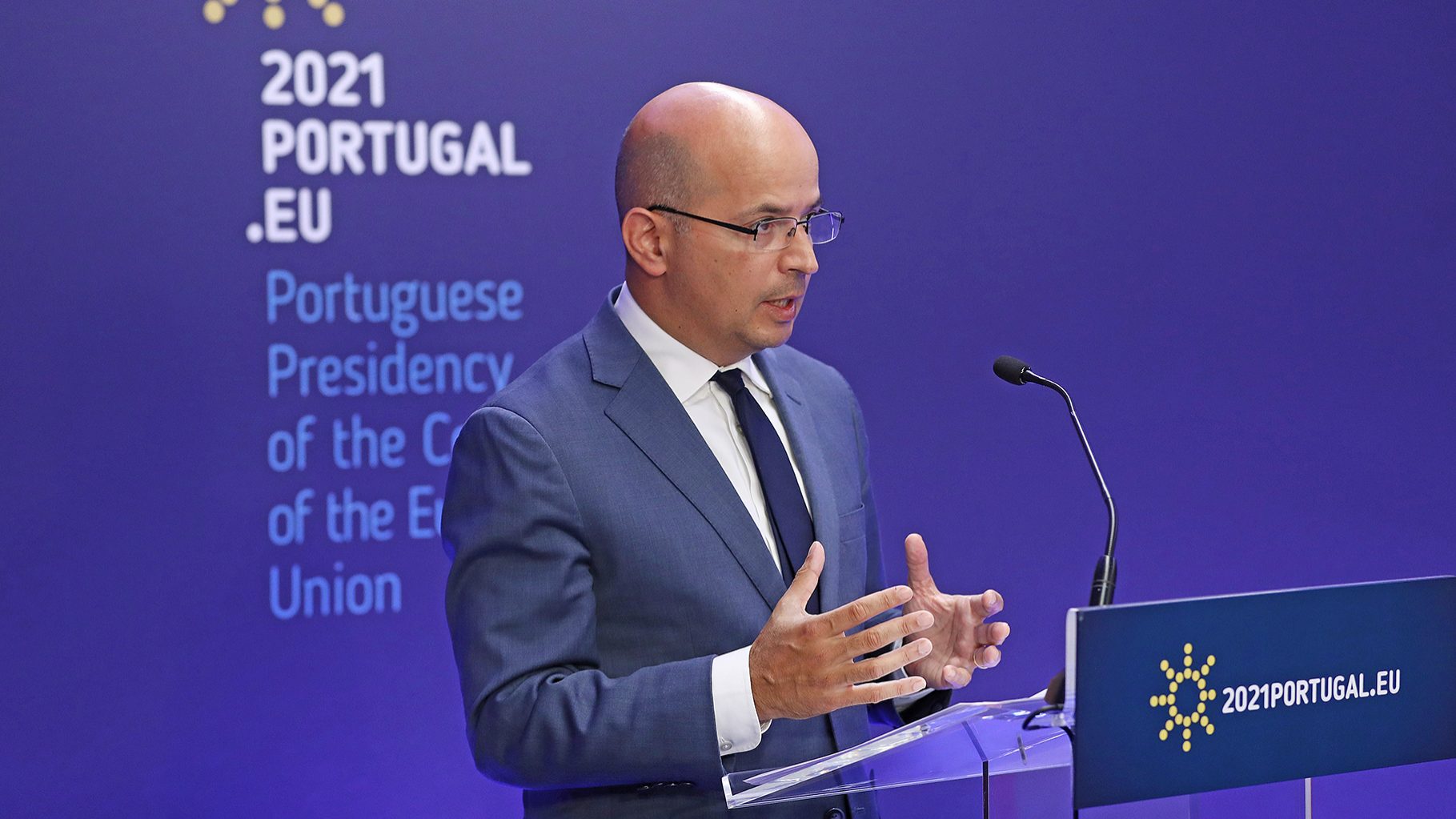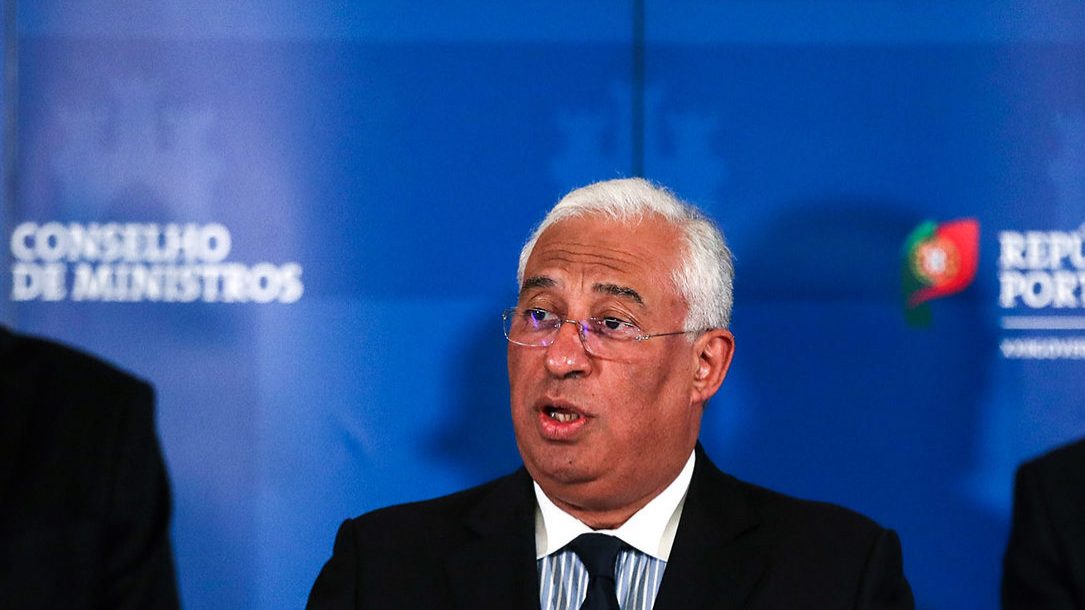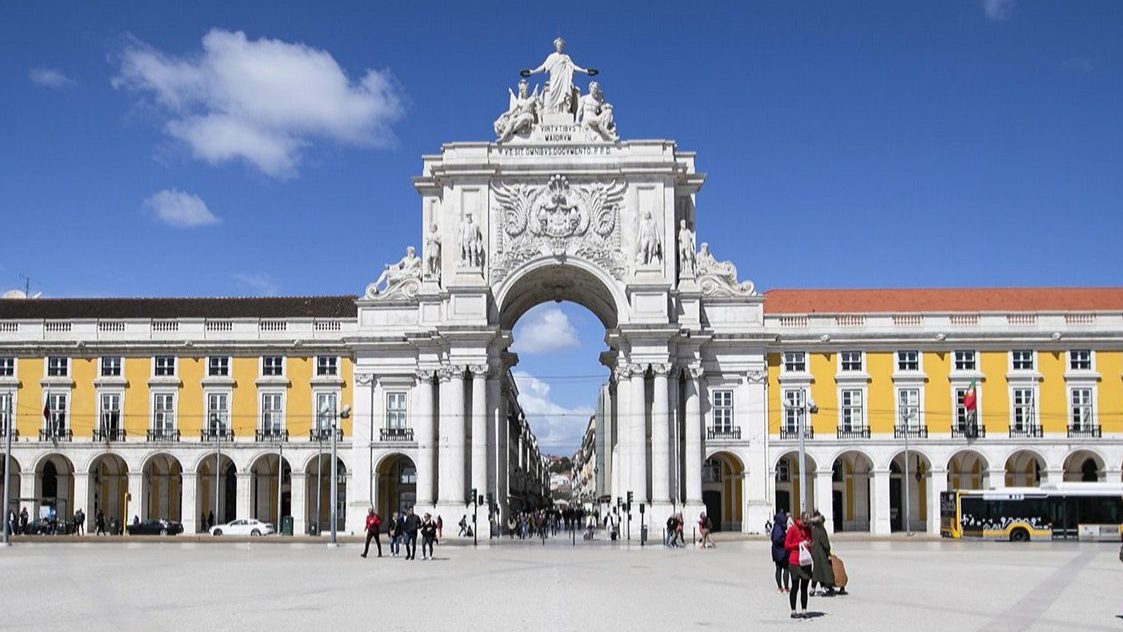Solidarity must be bedrock of EU, says Portugal’s PM
António Costa said on Friday that "solidarity" should be the foundation of the EU and warned of the need for Europe to give citizens "hope and confidence in the future".
Portugal’s prime minister, António Costa, said on Friday that “solidarity” should be the foundation of the European Union, which has demonstrated it in this pandemic crisis, and warned of the need for Europe to give citizens “hope and confidence in the future”.
Costa was speaking at the closing ceremony of the 2020-21 academic year of the College of Europe, whose ‘patron’ was the former Portuguese head of state and government Mário Soares, in the Belgian city of Bruges, where he left “a reflection on the future of Europe”.
“The pandemic showed the value of solidarity. From the start, [there was] solidarity in sharing vaccines to ensure that all Europeans had access to vaccination, but [there was also] solidarity with all the world’s peoples: Europe is the only democratic region in the world that has never stopped exporting vaccines. (…) The value of solidarity that the crisis has highlighted must be the foundation of our Union,” he said.
In a speech that served as a “reflection on the future of Europe” and as a balance of the current Portuguese presidency of the Council of the EU – which ends on June 30 – the prime minister began by stating that the vision of Mário Soares “inspired the three main priorities” of the Portuguese presidency.
Highlighting the “urgency of socio-economic recovery after the widest and most serious crisis Europe has known since the Second World War”, Costa stressed that the first objective of the Portuguese presidency was to allow “a return to prosperity through a recovery centred on the dual green and digital transition”.
“In the face of the pandemic crisis, many wondered how Europe would react to an external and symmetric shock of this magnitude, with huge and clearly asymmetric socio-economic consequences. We made the only viable choice: we chose union,” he stressed.
Qualifying the joint debt issue and elaborating the ‘NextGenerationEU’ Recovery Fund as a “pivotal moment” for the EU, Costa also stressed that it is the “first time that Europe has not responded to a crisis with austerity”.
Turning to the second priority of the Portuguese presidency, the prime minister stressed that it was the “promotion of European values”, highlighting the importance of both the Porto Social Summit, held on 7 May, and the adoption, on that occasion, of the European Pillar of Social Rights Action Plan.
“We need a Europe capable of producing results, of honouring its values and of giving its citizens hope and confidence in the future: by producing results, by responding to the anxieties and legitimate expectations of its citizens, Europe combats the fear that fuels populism. Hence the importance, during the current crisis, of the EU’s common, firm and determined response,” he underlined.
Reiterating the importance of solidarity, Costa said that Europe must “assume its responsibility to ensure the international protection of all those who are victims of wars, human rights violations, and political, religious or other forms of persecution”.
Addressing the third priority of the Portuguese presidency, he said that it was a matter of “strengthening the strategic autonomy of a Europe open to the world”, stressing that the EU needs to “diversify relations with partners from all latitudes”, listing in particular Africa, the transatlantic partners – such as the United States, Latin America or the United Kingdom – but also the Indo-Pacific region.
“We made the summit with India [on 8 May] a priority, and we are proud that our presidency finally managed to unblock negotiations on trade and investment and open new joint projects on space, digital technology and the climate with India,” he said.
The Prime Minister also considered that if Europe “wants to have a future”, it needs to mobilise the “forces of citizenship and, above all, of the next generations”.
In this sense, he also addressed the Conference on the Future of Europe to underline that the event should not “exhaust itself in institutional matters” nor “gather itself in Brussels”.
“He said that if we want to succeed, we cannot ignore our differences. We must address them, confront our positions frankly and loyally. The Conference on the Future of Europe is the occasion to do so: to decide what we all want to do together, and what only a few want to do together,” he pointed out.
Costa concluded by stating that despite the “dark context” that Europe is going through – due to the pandemic, the “dramatic” socio-economic crisis, instability in the neighbourhood and the threat of terrorism – Europeans “have a duty to believe in the future”.
“Mário Soares was always an idealist in his vision of the future and a realist in his construction of the present. The best way to honour a man of his greatness and vision is to look at the future of Europe head-on, with a sense of need, urgency and dissatisfaction,” he said.


